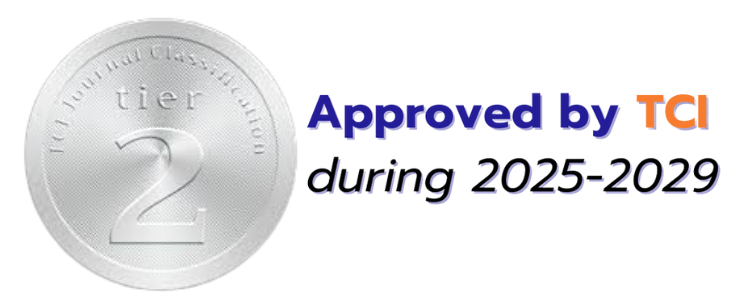The Study of Needs to Promote Knowledge on Adding Value to Wolffia for the Members of Phra Thaen Way Community Enterprise and Students in the Agricultural and Environmental Education Program
DOI:
https://doi.org/10.56825/jehds.2025.926237Keywords:
Needs Analysis, Knowledge Promotion, Wolffia Value Adding, Community EnterpriseAbstract
This research aims to 1) examine the essential needs for promoting content knowledge and instructional methods on adding value to Wolffia among members of the Phra Thaen Way Community Enterprise, 2) investigate the essential needs for promoting content knowledge and instructional methods on adding value to Wolffia among students in the Agricultural and Environmental Studies program, and 3) study the necessary support factors for promoting knowledge on adding value to Wolffia for both the community enterprise members and the students. The participants included 22 members of the Phra Thaen Way Community Enterprise and 85 students from the Agricultural and Environmental Studies program. Data was collected using a 4-point Likert scale questionnaire. The data analysis included frequency, percentage, mean, and standard deviation
The research results revealed key knowledge needs and preferred learning methods as follows. 1) The member of the Phra Thaen Way Community Enterprise expressed the highest needs for knowledge enhancement in processing Wolffia into northern-style sausage with Wolffia, with seminars on Wolffia and its value-adding processes identified as the preferrable method of knowledge transfer. 2) For students in the Agricultural and Environmental Studies program, the highest knowledge enhancement need is the process of transforming Wolffia into matcha Wolffia cookies. Hands-on training focusing on value-adding processes for Wolffia has been identified as the most desired method of knowledge transfer. 3) With respect to support for knowledge promotion, the Phra Thaen Way Community Enterprise members preferred online approach through the Zoom platform, if on-site, Phra Thaen Subdistrict Municipality was preferrable venue. Video clip was the most preferrable medium for knowledge acquisition. For students in the Agricultural and Environmental Studies program, they preferred online approach through the Google platform. If on-site, The Department of Human Resource and Community Development was preferable venue, and most students also wanted to learn from video clips as well.
Downloads
References
Chankaew, W., & Rattamusik, A. (2019). Comparison of nutritional value, heavy metal residue, pigment and antioxidant activity of Water Meal (Wolffia) between natural and cultured. (Research report). Faculty of Agriculture, Rajamangala University of Technology Srivijaya.
Community Organizations Development Institute. (2024). “Kai Pam, Super Food” a tiny miracle plant, easy to cultivate and high in demand, from Phra Thaen district, Kanchanaburi province. https://web.codi.or.th/index.php/20240613-54496/. [translated]
Ministry of Agriculture and Cooperatives. (2023). Agricultural research development agency (Public Organization) support research on "Kai Pham" to drive future food innovation. https://www.moac.go.th/news-preview-451291791509 [translated]
Pansrinuan, C., Siripipattanakul, S., & Rampai, N. (2023). Self-Directed Online Training to enhance knowledge and practical skills on official correspondence typing for support staff, Education and Development Sciences Faculty, Kasetsart University Kamphaeng Saen Campus. Journal of Education and Human Development Sciences, 7(1), 154-166.
Pattaragorranan, N. (2015). Concepts and management techniques of adult learning. Journal of Education Silpakorn University, 12(1-2), 18-29.
POST TODAY. (2024). The Ministry of Higher Education, Science, Research and Innovation (MHESI) is confident that Thailand will become a leading hub for future foods in the region, highlighting "Kai Pam" (Wolffia) as a promising export product worth hundreds of thousands. https://www.posttoday.com/smart-sme/705945. [translated]
Rungprasertwong, K. (2024). Raise Wolffia out of water! cultivate in a controlled system with easy management; ready for harvest in two weeks. Add value by transforming it into a new healthy menu alternative. MGR Online. https://mgronline.com/smes/detail/9660000094476#m2q5qlrk0mp4fdspnfvi. [translated]
Trang Provincial Agriculture and Cooperatives Office. (2022). "Kai Pam": A local vegetable and a superb source of protein. It can be cultivated and used as an ingredient in home-cooked meals. https://www.opsmoac.go.th/trang-article_prov-preview-441291791793. [translated]
Wongwanich, S. (2015). Needs assessment research. Chulalongkorn University Press.
Downloads
Published
Issue
Section
License
Copyright (c) 2025 วารสารศาสตร์การศึกษาและการพัฒนามนุษย์

This work is licensed under a Creative Commons Attribution-NonCommercial-NoDerivatives 4.0 International License.







